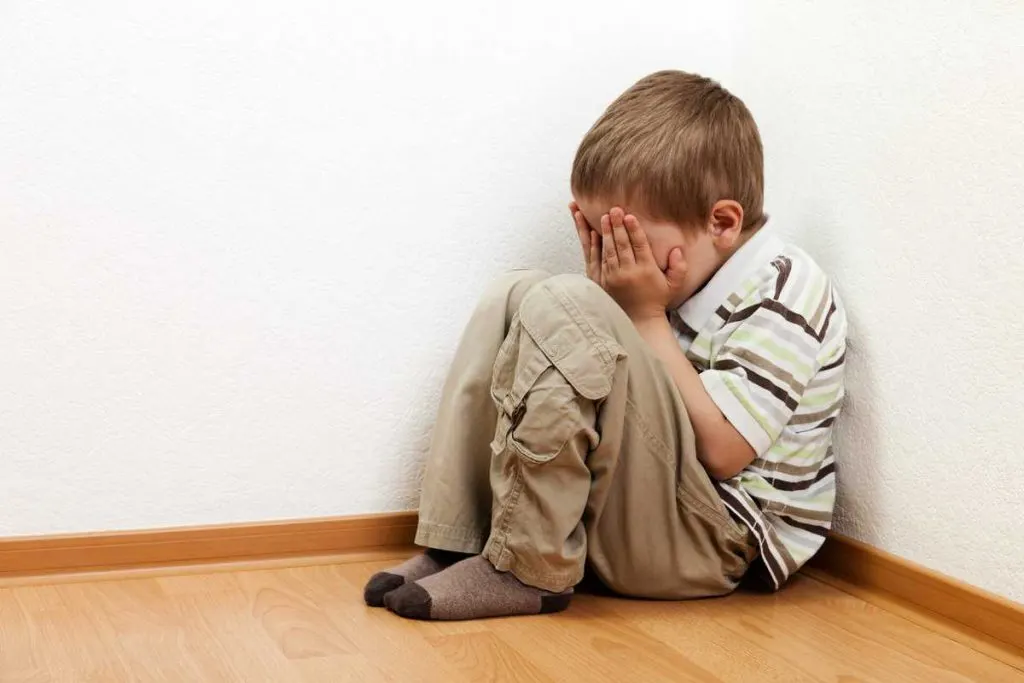We need to start off with the hard truth: good parenting is tough work, and while this may be the case, the fruits of your labor are well worth it.
The second hard truth is that no book is able to help you with your specific situation. Every child is different and they need different approaches.
Even styles of parenting need to change throughout the child’s life and you’ll need to adapt to the changes they’re going through.
No matter how much you don’t want it to happen, one day you’re dropping off your toddler for their first day of school, you’re helping your child get ready for their first date and you’re helping your teen pack for college!
4 Types of Parenting: the Good and the Bad

No matter how you approach these changes, your parenting will fall into one of these four categories:
#1 Neglective Parenting Style

I think we can deduct from the name that this is one of the worst parenting styles.
To put it plainly, this is when you don’t give your child enough attention, whether intentionally or not.
Maybe you aren’t a bad parent, you just don’t have the time. Maybe you work a lot.
Neglecting your child may lead to anti-social behavior, grades slipping, and a lack of self-esteem.
I don’t want to come off as rude, but if you didn’t have time for yourself before the child, you won’t have time for the child either.
While I do agree that money is relevant to your survival, your child is more important. This formula applies to any other excuse you might come up with.
#2 Permissive Parenting Style

This style is the complete opposite of the one under #1.
The Permissive parenting style is when you’re always around your child and you allow them everything.
And when I say everything, I mean everything.
The kids are allowed to do whatever they want without any fear of consequences because you as a parent haven’t shown them that they could be punished for their behavior.
While I understand that you want to provide your kids with things you probably weren’t able to have, children still need some sort of authority to guide them and teach them basic human principles.
Kids who grew up like this are the ones you see throwing tantrums and crying when they don’t get something they want. These same kids grow up to be Karens.
You don’t want a 5-year-old to command your household do you?
#3 Authoritarian Parenting Style

With this parenting style, you’re essentially not allowing your kids to do anything. You don’t let them express themselves, you don’t care about their wants and needs.
Parents with this parenting style are usually unfulfilled adults who are trying to live through their kids. The parents force the kids to do everything they didn’t get to do, even though the children don’t like it.
If the child expresses dislike or if they defy the parents, they’re met with harsh discipline like yelling, slapping, smacking, etc.
While discipline is needed, hitting your child is never the way to go about it.
You need to realize that your child is not a mini-you. They are their own person with thoughts, feelings, and interests separate from yours.
#4 Authoritative Parenting Style

Now this style is the perfect balance between #2 and #3. You’re mixing all the good from both sides.
You’re relaxed and responsive enough to your child’s needs while still providing the authority figure they need in their lives.
This is a style where you’re both a friend and a parent! You reward good behavior and punish misbehavior, not by raising a hand at them, but by talking through the issue.
It’s hard but rewarding to balance this particular parenting style.
Good Parenting Tips:

Raising children is tough and requires lots of patience and discipline, but it pays off in the long run!
Make sure you’re adjusting your parenting style according to your kid’s age and don’t forget to let loose sometimes!
It’s not all about punishment, take a chance to watch your child grow!
#1 Be the Role Model

I’m not saying that you should be a saint, but do teach your children some morals and help them have an open mind and healthy approach to life.
Your kids will mimic you, especially at an early age, so make sure you exhibit good behavior. Think twice before you speak or act and you’ll be set.
#2 Give Them Love

Kids need love, it’s as simple as that. But don’t go and smother them, because there is such a thing as too much love.
Your kids need to practice self-reliance and you’re just stifling that development by being overprotective.
#3 Don’t Raise Your Hand at Them

I feel like this one should be a given, but apparently it still needs to be said to this day.
Children who grow up being disciplined physically tend to have mental health problems and they resolve all their future problems with fists.
#4 Your Style of Parenting Should Change

As your children grow, so should your parenting tactics. You should be a bit stricter when they’re young so they know basic principles and respect you as an authority.
As they grow older you can start loosening that grip and this will allow them to practice independence while still looking to you for guidance.
#5 Justice for Picky Eaters

As adults, kids will pick out what they like and don’t like to eat.
My advice is don’t render food as ‘good‘ or ‘bad‘, simply don’t keep unhealthy food readily available if you want your kids to eat healthy.
#6 Put Them to Work

Don’t worry, I’m not promoting child labor, that’s bad and you shouldn’t do it.
What I mean is, let them help you with chores. Let them cook with you, do the laundry, vacuum, and the like.
This will not only teach them to be responsible adults, but it will also make boring chores fun!
#7 Let Them Do Homework Alone

This one’s a bit specific but it has the general idea. Homework is something that they have been assigned to by their teacher– another authority figure in their life.
This is something that they have to do alone in order to learn and develop their skills. You doing things for them will just stump their growth and no one benefits from it.
Sure, you’re allowed to help them by explaining something they don’t understand but don’t do the whole thing on your own while they’re sitting on the couch playing games on their phone.
#8 Be Present

If something is happening in their lives or they’re just down in the slumps, make sure your kid knows you’re there for them.
Lend them a shoulder to cry on and provide extra support.
#9 Set Boundaries

When your kid misbehaves, you need to let them know that what they’ve done is bad. However, you can’t punish them without an explanation first!
Kids won’t know that something is bad unless you tell them, so communicate and set boundaries.
#10 Let Them Be Kids

Kids are kids, they aren’t little adults, so let them run, play, and be messy, especially at a young age.
By letting them run around, your child keeps active and healthy, despite what they eat, plus they tire out and bedtime becomes easier!
#11 Be Consistent

Once you set a boundary, don’t go back on your word, and don’t be lenient. Boundaries are there for a reason and once they become a constant in your children’s lives, they will promote positive behavior!
#12 Have an Open Mind

When your child comes to you with something, don’t shut them down immediately.
For example, if they want to take up a sport you’re not particularly too happy about, you should still listen to them as to why you should allow them to go!
#13 Be Friends

If you want your child to talk to you about their problems, keep you updated on their lives in the future, etc. you need to make sure you’re friends with your kids as well.
Show them respect and treat them as equal at times!
#14 Remember: You Were a Kid Once Too

Remember how you felt as a kid, think back on what made you feel supported and confident and what made you feel discouraged.
Use your own past as a guideline!
#15 Think about Yourself

Last but not least, make sure you take care of yourself in the process.
Parenting kids is hard work, but taking an hour for yourself is something kids understand when explained to them in a calm manner!

